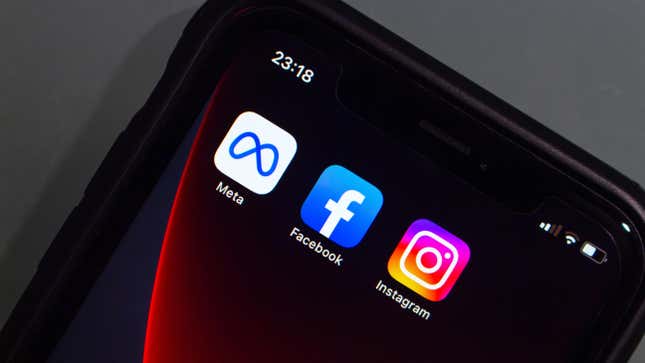
Being waterboarded with advertisements sort of feels like second nature on the likes of Facebook and Instagram, but for some in the EU willing to pay, that will change.
Meta revealed its subscription service to access an ad-free version of Facebook and Instagram in a blog post Monday. Users in several European countries will now have the option to pay anywhere from €9.99 on desktop or €12.99 on mobile—that’s about $10.60 and $13.78 USD, respectively—for an ad-free version of Instagram and Facebook. For now, the fee will cover all accounts linked to the account that purchases the subscription, but starting on March 1, 2024, users will have to fork over €6 ($6.36) on desktop or €8 ($8.48) on mobile for each additional account.
“We believe in an ad-supported internet, which gives people access to personalised products and services regardless of their economic status,” Meta wrote in the announcement. “And like other companies we’ll continue to advocate for an ad-supported internet, even with our new subscription offering in the EU, EEA and Switzerland. But we respect the spirit and purpose of these evolving European regulations, and are committed to complying with them.”
Earlier this month, news broke that Meta was toying with having users pay for an ad-free experience on its platforms. This new subscription system is Meta’s attempt at navigating through the EU’s recent regulations, which clamped down on Big Tech abusing data privacy and targeted ads. Meta previously cited the EU’s General Data Protection Regulation and the Data Privacy Act, which aims to tear down the “walled gardens” of Big Tech “gatekeepers” like Meta, Amazon, and Apple.
The subscription offering comes as social media companies continue to struggle with diversifying their sources of income. Meta’s billion-dollar investments in bringing social networking to virtual reality have proven futile as the tech giant’s Horizon Worlds just isn’t resonating with a wide audience. When it comes to social media subscriptions, however, Twitter began touting a subscription-based verification system almost immediately after Musk took over the platform earlier this year.